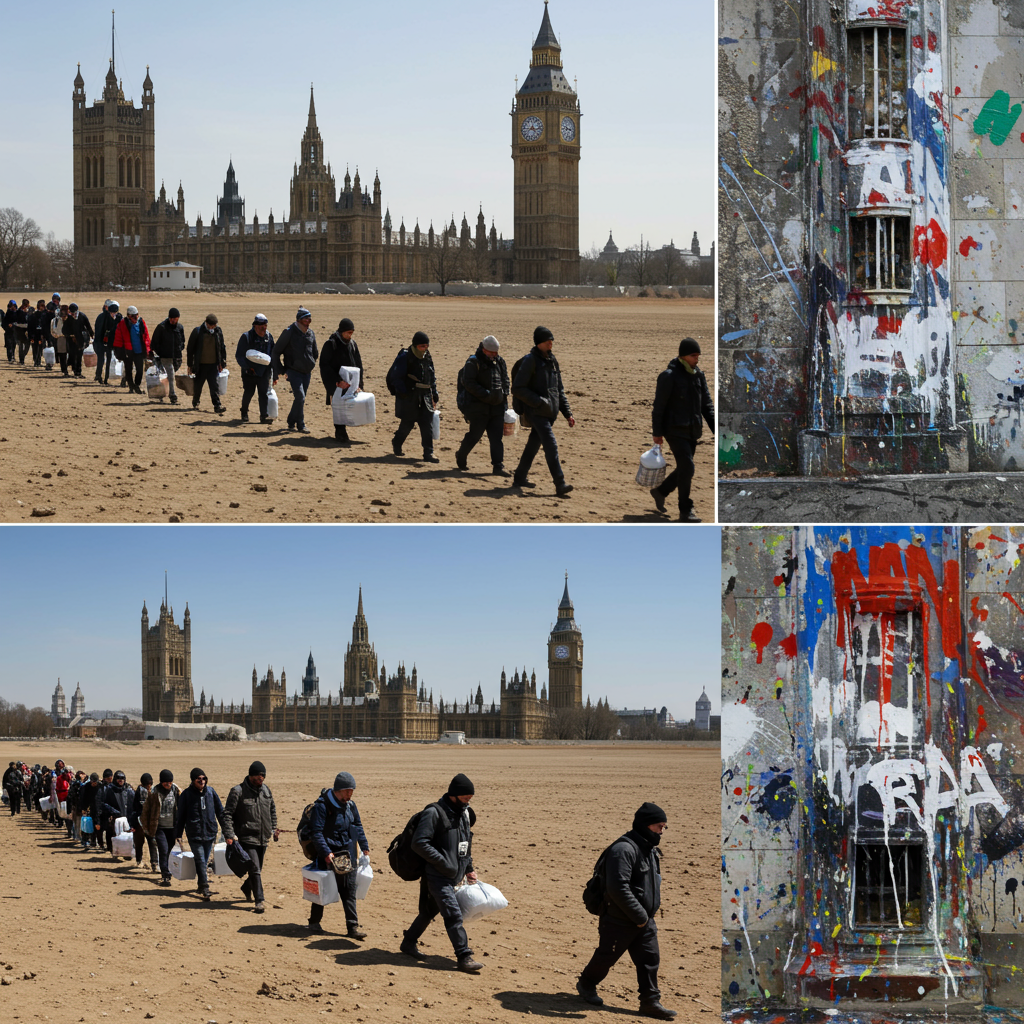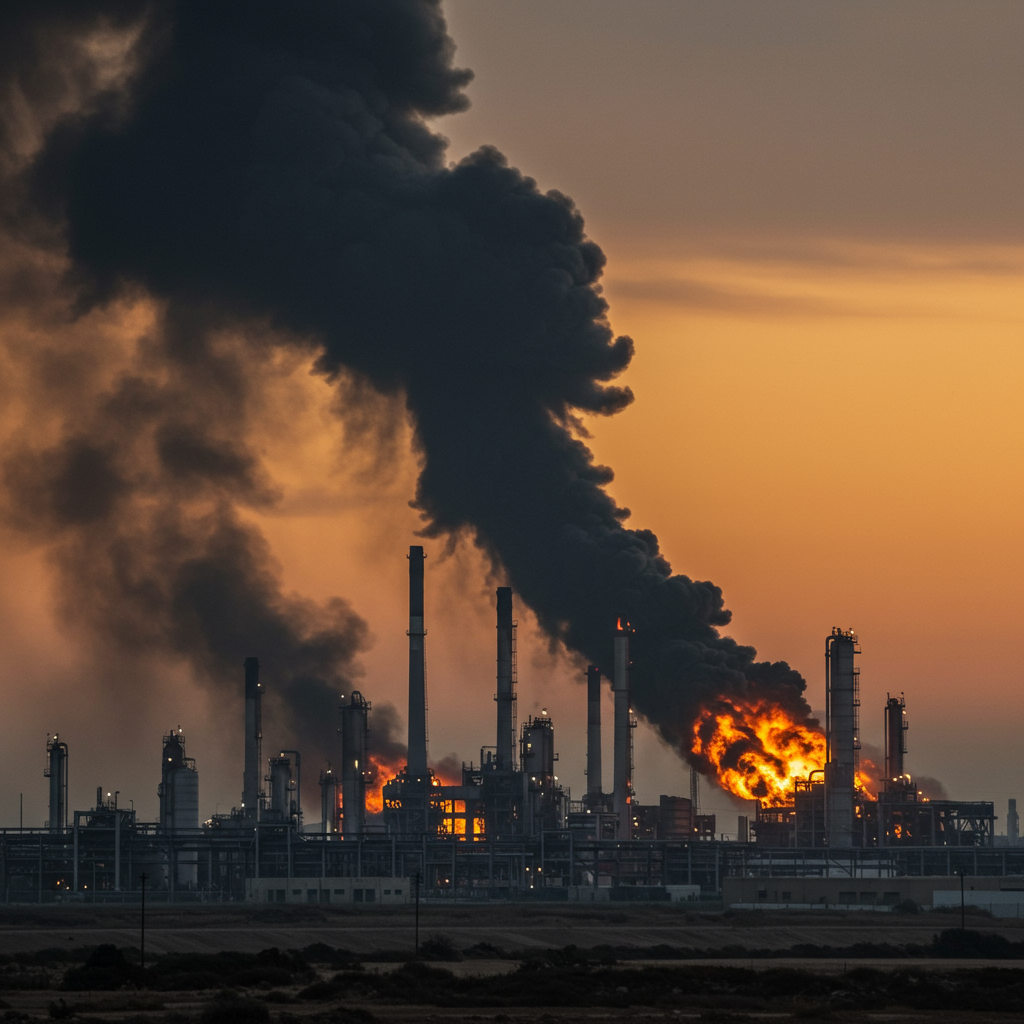A recent opinion piece sharply contrasts the UK government’s potential response to two distinct events, sparking debate about the definition of terrorism and the limits of protest. The focus centers on the divergent reactions to lethal actions by state forces and non-violent property damage by activists.
On June 20th, reports emerged of Israeli forces opening fire on Palestinians queuing for aid near the Netzarim corridor in Gaza, an incident tragically resulting in the deaths of 23 civilians. On the very same day, activists linked to the UK group Palestine Action reportedly broke into an RAF base at Brize Norton and spray-painted military aircraft as a form of protest.
The crucial distinction highlighted is stark: one event involved the intentional use of lethal violence against civilians, resulting in significant loss of life and injury. The other, while illegal, involved no violence against individuals and resulted solely in property damage. Yet, the UK government has indicated its intention to potentially treat the latter incident – the property damage by Palestine Action – as a terrorist offence.
This stance raises profound questions about how governments label and respond to different forms of action and resistance.
UK Government’s Potential ‘Terrorism’ Label
The prospect of the UK government proscribing Palestine Action as a terrorist organization under the Terrorism Act is a central point of contention. This action would have significant implications, extending far beyond individual prosecutions for specific acts like property damage.
Defining Terrorism: Property Damage vs. Lethal Force
Under current UK law, the Home Secretary possesses considerable power to proscribe groups deemed “concerned in terrorism.” Historically, this power has been used against militant groups engaged in or advocating violent armed struggle posing a threat to life. However, the legal definition of terrorism is broad enough to encompass property damage and disruption of electronic systems, even in the absence of any threat to human life or public safety.
Critics argue that applying the terrorism label to non-violent property damage, while actions resulting in the deaths of civilians are not similarly classified by the UK government, represents a disturbing double standard and a misapplication of the law’s intent. Palestine Action is characterized as not being an armed group, having caused no fatalities, and posing no risk to the public.
The Implications of Proscription
Should Palestine Action be proscribed, mere membership in the group could become a criminal offence. More alarmingly, expressing support for the group, even purely through words, could potentially constitute a serious legal offence, carrying a possible sentence of up to 14 years in prison. Financial dealings with members or supporters could also be deemed illegal, potentially impacting individuals whose only action was expressing solidarity with a protest movement.
This potential expansion of the terrorism definition to include verbal support for non-violent (albeit illegal) activism is seen by many as an alarming curtailment of free speech and a chilling effect on legitimate political expression.
International Alarm and UK Policy
The actions in Gaza occur amidst widespread international alarm and assessments regarding the conflict. Reports from international bodies, including a UN special committee and Amnesty International investigations, have characterized the campaign in Gaza as potentially consistent with the characteristics of or amounting to genocide. These assessments underscore the gravity of the situation on the ground. Concerns about potential war crimes have even surfaced as a personal view from within the US government, according to recent interviews.
Despite these international concerns and significant public opinion in the UK favoring a complete embargo on arms sales (a poll last year indicated 56% support), the UK government continues to provide military intelligence and British companies reportedly continue to sell lethal weapons to Israel. Peaceful mass protests in the UK, while drawing hundreds of thousands, have seemingly had little impact on government policy.
The Justification for Civil Disobedience
In the face of continued state support for actions labeled by international bodies as potentially constituting grave war crimes, the question of justified civil disobedience arises. Those who engage in intentional law-breaking as a form of political resistance often point to historical movements – from the suffragettes to the civil rights and anti-apartheid struggles – where illegal actions were deemed necessary to challenge unjust laws or policies.
Drawing on figures like Martin Luther King Jr., proponents argue for a moral responsibility to disobey laws that facilitate profound moral wrongs. Providing weapons that contribute to widespread death and suffering is described as an “abyss of moral horror,” suggesting that, in such extreme circumstances, those who break the law in protest may deserve respect.
Free Speech Under Threat?
The potential proscription of Palestine Action highlights a broader concern about freedom of speech and assembly in the UK. If supporting non-violent property damage can be labeled terrorism, what are the implications for other forms of protest and dissent? Law-abiding protest is seen by many as having failed to halt the immense suffering in Gaza, where tens of thousands of children have reportedly been killed or injured.
The situation forces a difficult question: In circumstances where conventional avenues for change seem ineffective and humanitarian catastrophe is unfolding, when, if ever, is civil disobedience justified? The debate over Palestine Action and the UK government’s response is not just about property damage; it’s about the permissible boundaries of protest, the definition of terrorism, and the safeguarding of free expression in a democratic society grappling with complex international issues.
Many who support groups like Palestine Action view their actions through the lens of resistance against policies they see as enabling atrocities, standing firm in their belief and vocal support despite the potential legal risks now being raised by the UK government.




